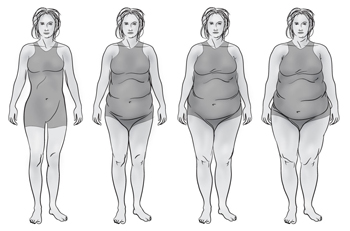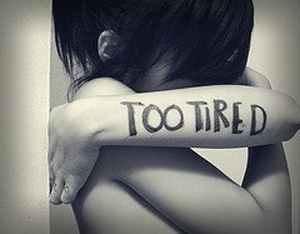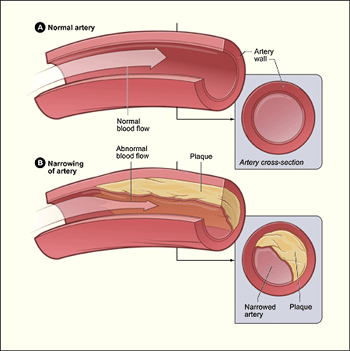Thyroid Disease Symptoms
Fatigue, depression and weight gain are three often overlooked, but yet quite common thyroid disease symptoms. Most of us don’t pay much attention to our thyroid gland. Conventional medicine has really done a poor job of practically ignoring it and just “expecting” it to do its job. The reality is that there are millions of people suffering daily from a number of thyroid disease symptoms, yet they have no idea what is causing these symptoms to occur.
Unfortunately the most commonly used tests to diagnose thyroid disease are not accurate to say the least. Because of this, it’s extremely important that we spread awareness about the vast number of thyroid symptoms so that people can start addressing this very real and prevalent problem instead of being continuously treated for other non-related health problems..
I’ve already mentioned three of the most common symptoms – but let’s take a closer look at those since they are often mistakenly attributed to other conditions.
Common Thyroid Disease Symptoms # 1 – Fatigue
Fatigue is not only one of the early thyroid disease symptoms, but is also one of the most frustrating. Often it begins with just feeling a little more tired than usual in the afternoon, but can soon progress to the point that you feel exhausted most of the time no matter how much sleep you get.
Everyone enjoys a nap once in a while, but if it becomes a necessity just to get through your day, perhaps you should take a closer look at your symptoms and note any others that can be related to hypothyroidism. Oftentimes these energy lows turn into chronic patterns in your day-to-day life. If you notice that your energy fluctuations follow a daily pattern then this is a pretty good indication that your energy and sleep problems are in fact thyroid disease symptoms.
Common Thyroid Disease Symptoms # 2 – Weight Gain
 Weight gain, or weight loss resistance, is one of the most well- known thyroid disease symptoms. Most people understand that thyroid hormones regulate metabolism and that when they are askew, it’s common to start putting on extra pounds. What is lesser known is the fact that dieting for such weight gain is usually fruitless.
Weight gain, or weight loss resistance, is one of the most well- known thyroid disease symptoms. Most people understand that thyroid hormones regulate metabolism and that when they are askew, it’s common to start putting on extra pounds. What is lesser known is the fact that dieting for such weight gain is usually fruitless.
The normal response to weight gain is to cut back on your eating. However, with thyroid disease, it just doesn’t work that way. The less you eat, the slower your metabolism, and the slower your metabolism, the harder it is to lose weight. People often find themselves in a cycle of unsuccessful yo-yo dieting because they fail to understand the drastic influence that their thyroid has on their metabolism.
Common Thyroid Disease Symptoms # 3 – Depression
Depression comes as a surprise to many people who would never think of associating depression with their thyroid gland. However, science continues to shed light on the fact that depression is one of the most common symptoms. It really has to do with how your hormones influence your mood.
While we’ve covered the 3 most common symptoms, there are also a number of other symptoms that need to be mentioned.
Male Specific Thyroid Disease Symptoms
 Hypothyroidism can affect all of the body’s systems and can be especially affective at disrupting the male reproductive system. Symptoms for men can include loss of libido, erectile dysfunction, and even infertility. Fortunately, once you follow the right hypothyroidism treatment protocol to correct the underlying hypothyroidism, these conditions are completely reversible.
Hypothyroidism can affect all of the body’s systems and can be especially affective at disrupting the male reproductive system. Symptoms for men can include loss of libido, erectile dysfunction, and even infertility. Fortunately, once you follow the right hypothyroidism treatment protocol to correct the underlying hypothyroidism, these conditions are completely reversible.
There are other common thyroid disease symptoms that are more prevalent in men than women including hair loss or balding, heart disease, and elevated cholesterol just to name a few.
Female Specific Thyroid Disease Symptoms
Just like a man’s reproductive system is oftentimes affected by hypothyroidism, a woman’s reproductive organs are often affected as well. Symptoms range from irregular menstrual cycles to infertility. It is not unusual for women to have painful cycles that are heavy and last longer than normal. Just like with men, once the underlying cause is addressed, these conditions are reversible.
General Thyroid Disease Symptoms Worth Noting
There are a large number of other thyroid disease symptoms that we’ve yet to cover. In fact, there isn’t enough space in this article to give them all due justice. Below, I’ve listed some additional general symptoms worth noting and that may help indicate whether or not you suffer from hypothyroidism:
Other Common Thyroid Disease Symptoms
- Joint pain
- Body stiffness
- Constipation
- Sensitivity to cold
- Dry, itchy skin
- High cholesterol levels
- Unexplained aches and pains
- Water retention
- Thin, brittle nails
- Prickling sensation on skin
- Feel worse after exercise
- Puffy or swollen eyelids
- Swollen neck or goiter
- Arthritis
- ADD/ADHD
- Though process feel slow
- Memory problems
- Tooth decay
- Chronic gum infections
- Sleep apnea/increased snoring
- Insomnia
- Difficulty concentrating
- Tongue swollen
- Slurred speech
- Bulging eyes
One of the first things that I do with my clients is to have them fill out a complete thyroid symptom checklist so that they can begin to realize just how far reaching their hypothyroidism really is. Most are dealing with a number of low thyroid symptoms that they never once thought could be related to their thyroid.
I’ve actually made this checklist available to you when you sign up for my free reports and I strongly encourage you to get it and see for yourself. Plus, you’ll get a number of other resources to help you to start taking a much more active role in your health.
If you suffer from any of thyroid disease symptoms that I’ve listed here or even have the slightest inkling that you might be hypothyroid, then I highly recommend you conduct your own therapeutic trial to confirm your own diagnosis. This is a far better option than using any of the highly inaccurate tests used today.
Simply follow a proper hypothyroidism treatment protocol including the right hypothyroidism diet and track your thyroid function through the process. If your symptoms improve along with your measure of thyroid function then you can be fairly certain that your suspicions were correct.
Just keep in mind that the scope of these thyroid disease symptoms is quite vast and that the right treatment option can help you turn your life around and have you back to your old happy and healthy self in no time.

 Weight gain is yet another symptom that most men completely write off as a byproduct of age. You may have been an avid athlete in your youth but today, your weight is beyond your control.
Weight gain is yet another symptom that most men completely write off as a byproduct of age. You may have been an avid athlete in your youth but today, your weight is beyond your control. Hypothyroidism is also the cause of a lot of muscle aches, pains, cramps, tenderness, and stiffness as well as pain and swelling in the joints.
Hypothyroidism is also the cause of a lot of muscle aches, pains, cramps, tenderness, and stiffness as well as pain and swelling in the joints.



